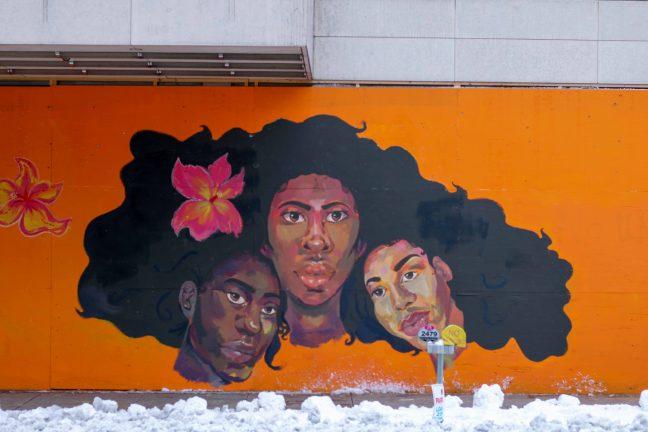The Perspectives Project aims to make mental health services more accessible for Madison’s communities of color, especially through seminars and peer support groups, according to the Perspectives Project.
The idea for The Perspectives Project came about when Anusha Ray Dey, a third-year neurobiology student at the University of Wisconsin, learned about the Wisconsin Idea Fellowship with one of three co-founders. These fellowships are given yearly to student projects that aim to address a community challenge along with a local partner, according to the Morgridge Center for Public Service.
“The idea with the Wisconsin Idea Fellowship is you want to address a disparity that you see within your community and reach far beyond,” Ray Dey said. “So I thought a perfect thing would be to create a resource for people of color to come and find a community that understands what they are going through.”
Inaccessibility to high quality mental health services, systemic racism and cultural stigma surrounding mental health care result in worse mental health outcomes for communities of color, according to the American Psychiatric Association.
After receiving the WIF grant in April, The Perspectives Project partnered with the National Alliance on Mental Illness — or NAMI —Dane County to reach beyond campus and start talking with high school students, Ray Dey said.
Ray Dey and co-founders Vaishu Gundamraj and Amita Doiphode were assisted by faculty advisors Dr. Sarah Short and Claudia Guzmán throughout the project.
“The biggest barrier in our communities is stigma,” Ray Dey said. “There’s this whole stigma around how mental health isn’t really something that matters, and seeking help is something only weak people do.”
In communities of color, particularly in Black communities, this stigma arises from the idea that their community has already suffered through so much adversity it would seem weak to ask for help for something like mental illness, according to the University of Southern California.
The pandemic has exacerbated this idea, disproportionately impacting people of color, according to Psychiatric Times. Already-existing social, legal and economic inequalities throughout American society lay the foundation for less mental health support for communities of color.
Ray Dey experienced a system that doesn’t have many resources for her community, she said. This is something UW attempted to address last September when University Health Services hired three new providers to work with students of color.
It was a struggle to find mental health experts to work with The Perspectives Project, Ray Dey said.
“It took us so long to find facilitators who knew about mental health and were people of color,” Ray Dey said.
The Perspectives Project aims to address these disparities through seminars hosted each semester, according to the organization’s website. Last semester, they hosted seven seminars with topics like pandemic distress, imposter syndrome and familial relationships, according to the website.
“Each of the seminars has a faculty facilitator,” Department of Psychiatry Associate Professor Vaishali Bakshi said. “So someone who is at a more senior level and who has some experience and perspectives on these topics and who can help to guide the conversations and be there as a resource.”
Bakshi has joined a few seminars as a facilitator and mental health expert.
The USC Department of Nursing collected data from adults in the United States who had unmet needs for mental health care services. The data revealed the biggest barriers to access in communities of color are cost, insurance issues, structural barriers and discrimination.
“All of my work has been research on the brain mechanisms of mental illness,” Bakshi said. “That was one of the perspectives I tried to provide — to emphasize that this is a biological issue and no one needs to be ashamed of having mental health struggles, just like no one needs to be ashamed of having heart disease.”
Organizers hope the Perspectives Project remains active even after the Wisconsin Idea grant has ended, hoping to host campus-wide events to address bigger audiences, Ray Dey said.
The Perspective Project’s next seminar, “Stereotypes and Assumptions” will be held March 22 from 6 p.m. to 7:30 p.m. at the Multicultural Student Center. It will discuss the stereotypes people of cover experience.


